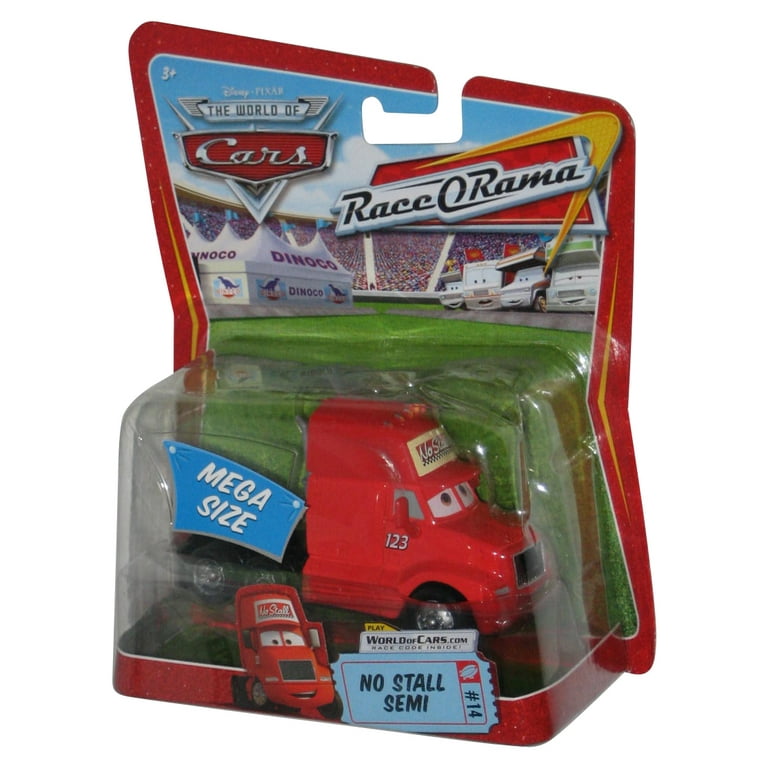
To not stall a semi truck, always maintain proper shifting and acceleration techniques. Pay attention to road conditions and use the appropriate gear for the speed and load.
This will help prevent stalling and keep the truck moving smoothly. When driving a semi truck, preventing stalling is essential for safety and efficiency. Stalling can lead to traffic disruptions, fuel wastage, and wear and tear on the vehicle.
We will discuss some practical tips to avoid stalling a semi truck and ensure a seamless driving experience.
Whether you are a new driver learning the ropes or an experienced driver looking for a refresher, these tips will help you maintain control and prevent stalling in various driving conditions.
By following these guidelines, you can enhance your driving skills and keep your semi truck running smoothly on the road.
Navigate As You Want:
Understanding Stalling In Semi Trucks
Semi trucks are designed for heavy-duty tasks, but sometimes they can stall. Understanding the causes of stalling is essential in preventing this issue.
One major cause is a faulty fuel system, such as a clogged fuel filter or a malfunctioning fuel pump. Another common culprit is an electrical problem, which can disrupt the flow of power to the engine.
Inadequate maintenance, like not regularly checking fluid levels or neglecting to replace worn-out parts, can also contribute to stalling. The consequences of stalling can be severe. It can lead to accidents, delays in transportation, and increased costs.
Furthermore, it can damage the engine and other components, resulting in costly repairs.
Regular maintenance, including inspecting and replacing faulty parts, and maintaining proper fluid levels, can help prevent stalling and ensure smooth and efficient truck operations.

Maintenance Tips To Prevent Stalling
Regular Engine and Transmission Service: Regular maintenance of the engine and transmission is essential in preventing stalling of a semi-truck. Ensuring that all fluids are at the correct levels and changing them according to the manufacturer’s recommendations is crucial for smooth operation.
Checking and Replacing Fuel Filters: Keeping the fuel filters clean and replacing them at regular intervals is vital for preventing stalling. Clean filters ensure the engine receives the proper fuel flow, preventing any interruptions in the combustion process.
Monitoring Tire Pressure: Maintaining the recommended tire pressure is important to ensure the vehicle operates efficiently. Proper tire pressure not only prevents stalling but also contributes to overall safety and fuel efficiency.
Driving Techniques To Avoid Stalling
Driving a semi-truck requires smooth acceleration and shifting to avoid stalling. Proper downshifting and braking techniques are crucial for maintaining control.
When tackling inclines, it’s important to maintain a safe speed by using the appropriate gears. Remember to anticipate road conditions and adjust your driving accordingly.
Preventing Stalling In Extreme Weather
When driving a semi truck in extreme weather conditions, taking preventive measures can help avoid stalling and ensure a smooth journey. In winter, it’s crucial to be prepared for the challenges posed by cold temperatures and icy roads.
Here are some tips to prevent stalling during winter driving:
- Use winter-grade fuel: Utilize fuel additives or specialized winter fuel to prevent the fuel from congealing and clogging the fuel filter.
- Keep fuel tanks full: This helps prevent condensation, which can lead to water in the fuel system and impact engine performance.
- Install block heaters: These devices warm the engine coolant and oil, making it easier for the engine to start in freezing temperatures.
- Check and maintain battery health: Cold weather can strain the battery, so ensure it is fully charged and in good condition.
- Monitor tire pressure: Low tire pressure can reduce traction and make it harder to maneuver in snow or ice.
- Use winter-grade lubricants: Swap to cold-weather lubricants for the engine, transmission, and other essential components to ensure optimal performance.
- Allow for longer braking distances: Increase the following distance and brake early to compensate for reduced traction.
By following these winter driving tips, drivers can minimize the risk of stalling their semi trucks and stay safe on the road during extreme weather conditions.
Emergency Measures When Stalling Occurs
Stalling a semi truck can be a stressful situation for any driver. When it occurs, it is important to remain calm and take immediate emergency measures.
Here are some troubleshooting steps to follow when stalling occurs:
- Check the fuel level to ensure there is enough gas in the tank.
- Inspect the battery for any signs of damage or corrosion.
- Examine the spark plugs to see if they need to be replaced.
- Verify if the engine air filter is clean and not clogged.
- Inspect the fuel lines for any blockages or leaks.
If these troubleshooting steps do not resolve the issue, it may be necessary to call for roadside assistance. Contact a professional towing service or your truck’s manufacturer for help.
Remember, safety should be the top priority in these situations. Stay cautious and follow any instructions provided by the experts to get back on the road smoothly.

Frequently Asked Questions
How Do You Prevent A Semi Truck From Stalling?
To prevent a semi truck from stalling, ensure regular maintenance, use the right fuel, engage gears properly, and monitor engine temperature to prevent overheating. Proper training for the driver and avoiding abrupt braking or acceleration can also contribute to preventing stalls.
What Causes A Semi Truck To Stall?
Several factors can cause a semi truck to stall, such as low fuel levels, mechanical issues like a faulty fuel pump or injector, improper gear engagement, or an overheated engine. Issues with the electrical system or faulty sensors can also contribute to stalling.
Can Stalling A Semi Truck Cause Damage?
Stalling a semi truck occasionally might not cause significant damage. However, repeated stalling can lead to increased wear and tear on the engine and its components, affecting performance and potentially leading to costly repairs and breakdowns if not addressed promptly.
How Can Engine Overheating Lead To Stalling?
Engine overheating can cause a semi truck to stall due to various reasons, such as coolant loss, a malfunctioning cooling system, or insufficient air circulation. When the engine temperature surpasses its optimal level, it can affect fuel combustion and lead to stalling.
Conclusion
Ensuring that you don’t stall a semi truck requires careful attention and adherence to a few key practices. By familiarizing yourself with the transmission, knowing the shift points, and paying attention to your RPMs, you can avoid stalling.
Additionally, regular maintenance and proper gear selection play crucial roles in preventing stalls.
Remember, practice and patience will help you become more comfortable and confident in driving a semi truck smoothly without stalling. Start implementing these tips today and enjoy a stress-free driving experience.



